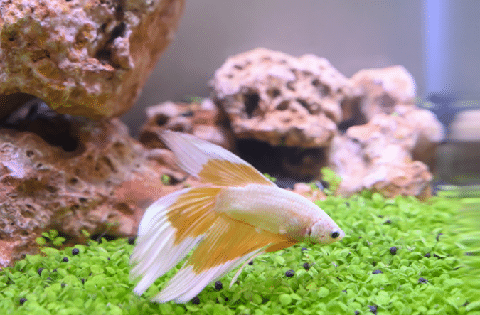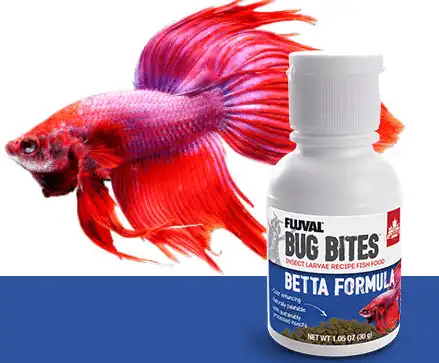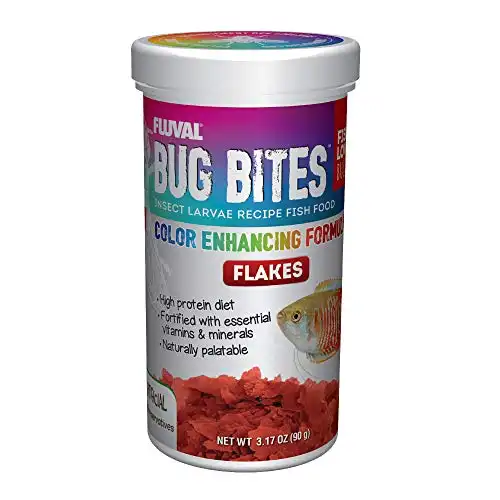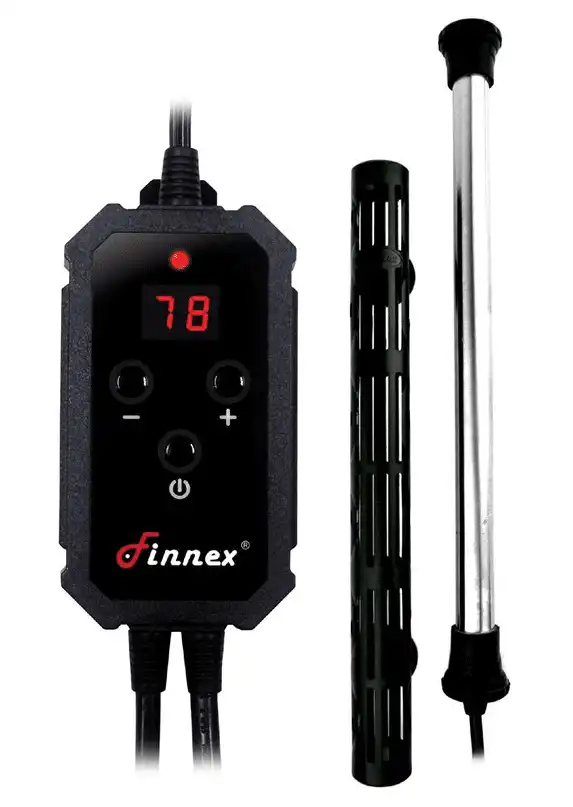Thank you for visiting! By the way… any links on this page that lead to products on Amazon and other stores/partners are affiliate links Aquarium Store Depot earns a commission if you make a purchase.
Despite having small stomachs, Siamese Fighting fish are prone to obesity, bloating, and other health issues because of overfeeding. Betta fish are popular for their voracious eating habits, which means, they will continue stuffing themselves until their bellies are about to explode.
Therefore, you have to be very careful about their eating schedule. A common question among aquarists arises: How often to feed betta fish? or “How often should I feed my betta fish?”
Honestly, the answer to this question is highly subjective. Well, of course, you don’t have to overfeed your fish, but the feeding schedule or frequency of betta fish comes down to three main factors:
- Your tank set-up
- The personality and age of your betta fish
- Fish food
Therefore, in this article, I won’t give a generic, one-size-fits-all response. Instead, you’ll get complete guidelines about your betta fish feeding regime, food options, etc.
Stay with me to explore more about this exciting topic!
Key Takeaways
- Betta fish eat protein-rich diet. If there are no proteins in their meal, they will eat algae roots as a means of survival.
- Betta fish have small stomachs. They only need around 4-7 pellets as one meal.
- Betta fish can go without food for 10-14 days, so you can leave them unattended for a weekend trip.
- You should always have a fasting day a week for the healthy well-being of your betta fish.
Types Of Food
According to a recent study,
“The growth rate, weight gain, and final weight of Siamese fighting fish were exceptional with mixed diet treatment, i.e., a varied diet.”
And rightfully so.
Since betta fish are strictly omnivores, they need a varied diet to ensure optimal health. We, as their owners, need to overcome any nutritional value deficiencies in foods in order to promote breeding and natural behaviors.
Therefore, fish experts suggest feeding betta fish a balanced diet that contains live food, frozen foods, commercial food, and vegetables.
Pellet foods
Betta pellets are the most common food for betta fish because they provide all the essential nutrients required for the optimal growth of your fish. However, refrain from getting inferior-quality pellets as they cause more harm than good.
My favorite betta fish pellets are Fluval’s bug bites formula because wild betta’s diet mainly comprises insect larvae, and the primary ingredient of these pellets is Black Solider Fly larvae. Therefore, it is the perfect diet with the perfect size to fit small mouths of betta fish.
Best Betta Food
Fluval bug bites is made of various insect and shrimp ingredients making this a high quality source of protein
You can also get floating pellets because betta have upturned mouths and are surface feeders.
Live Food
When it comes to feeding your betta, they thrive on live food as in the wild. Their diet mainly contains insects and small crustaceans. Therefore, captive betta should be fed brine shrimp, daphnia, mosquito larvae, and blood worms to replicate their natural diet and stimulate their hunting instincts.
If live food is not available in your nearest pet stores, you can also make your own live food with baby brine shrimp eggs. In a few days, you’ll have a wholesome colony of baby brine shrimp that you can feed betta fish easily. You can also opt to grow your own worms, but that is a messy process and better suited for larger aquarium setups where all the worms can be eaten quickly
Frozen food or freeze-dried foods
If you don’t have live food or cannot make your own live food, freeze-dried of frozen food is an excellent option. You can get blood worms, brine shrimp, and daphnia in freeze-dried food form and let your betta fish enjoy the flavor and nutritional value.
Vegetables
Although bettas are not very fond of vegetables, occasionally feeding as treats are highly recommended to improve their digestive system. Peas are best used to aid in digestion.
Flake Foods
Flake foods are not recommended for bettas because they are not as nutritionally dense compared to other fish food options. However, you can feed them if you really want. Lean on using betta food made in flake form if you want to use this type of food.
A flake version of Fluval's amazing pellet bug bits products. Great for all tropical fish and high in protein.
How Often Should They Be Fed – Factors To Consider
There are some factors to consider before setting a betta fish feeding schedule.
Age
The age of your betta fish largely impacts your food intake. Young betta or betta fry need more food than adult betta fish. However, adults require only once or twice feedings a day.
Size
After age, the size of your betta fish should be an indicator of your feeding frequency. The bigger the fish, the more food they need.
Activity Level

If you have short-finned betta fish, such as Plakats, you know they are more active than your long-finned betta varieties. And thus, they need more food and energy. The size of your tank will matter too. Fish in small tanks will not be as active, while fish in larger setups with other fish to interact with will be more active.
In short, the more active your fish is, the more food they need.
Stomach Size
Your betta fish’s stomach is the most prominent factor in determining your betta fish feeding. If your betta fish has a rounded stomach, it has had a hearty meal and is now happy.
However, make sure your betta doesn’t have a bloated stomach, as it can lead to constipation and other digestive issues.
Visible Swim Bladder
One of the most important factors to look out for is the prominence of the swim bladder in your betta, which is present near the tail of your betta fish.
If it’s easily visible, your betta fish is severely underweight, and you should increase the amount of food you’re feeding betta fish. However, if the swim bladder is not visible at all, chances are your betta is absolutely healthy, and you don’t need to adjust its diet.
Water Temperature
Since betta fish are tropical fish, they prefer warm water. And so, their metabolism also increases with warmer water temperatures. Thus, need more food.
How often?
So, you’ve already sorted out your preferred food for your betta fish and the condition of your betta fish is also clear. It’s time to answer the most asked question: How often to feed betta fish food?
If your fish is already healthy, feed an adult betta fish once or twice a day, provided your tank is adjusted at the ideal water temperature and the water quality is also pristine. I recommend spacing the fish meal at least 8 hours apart into smaller feedings if you’re feeding twice a day.
In the case of juveniles, you can feed a betta fish several times a day, provided that you’re not overfeeding and offering appropriate amounts.
However, if your fish is breeding, spread out more frequent meals at a 4 to 6-hourly gap and make sure your fish eat food within 2 minutes
Fish experts also recommend having one fasting day a week to keep the digestive system on track and reduce the risk of bloating and constipation.
How many pellets do I feed them in a meal?
Pellet food size differs from brand to brand, so the answer is subjective. Follow the package instructions and feed a betta fish the amount of pellet food that fits their mouth. As a rule of thumb 4-7 pellets is okay to use in a feeding.
How To Prevent Overeating
Betta fish are voracious eaters. Wild bettas eat whatever they can whenever they find it. Therefore, if you have a wild-caught betta fish, chances are it will end up overeating and bloating.
Of course, overeating leads to several health issues in betta fish, such as obesity, swim bladder disease, and digestive issues.
Therefore, it is important to control their diet and ensure what you provide is a balanced and healthy diet. Always feed your betta fish the recommended daily amount of food and clean the excess food or too much uneaten food after each feed with a net or turkey baster.
Fry And Juvenile Considerations
After 3 days of hatching, the yolk is attached to a fry. Therefore, it will feed off the yolk sac for the first 48 hours. After 48 hours, betta fry will search and hunt for food. It is recommended to feed insect larvae or infusoria or baby brine shrimp to young bettas as this food is much like a liquid. You can also feed them live food as it is full of nutrients and easy to hunt.
However, make sure the amount you’re feeding to young bettas should be bite-sized
What To Do If They Aren’t Hungry
The good part about betta fish’s diet is it can go without eating for 10-14 days. So, even if you forget to feed them for a couple of days, they should be okay.
However, there are a few concerns if your betta fish stops eating altogether.
Stress
There are several reasons for stress in betta fish. It could be due to changes in water temperature, tank decors, environmental change, or the introduction of new tank mates. Mostly, the change in water temperature doesn’t do well for bettas. Therefore, I always recommend installing an aquarium water thermometer and heater to control the temperature.
Best Aquarium Heater
Finnex has achieved what we as hobbyist have asked for decades. A reliable heater that won't fail. Japanese components. Receives our top recommendation.
Small Tank
The other reason could be insufficient swimming space. Though bettas are not surprisingly active fish, they still need at least a 5 gallon tank to thrive as a solo fish or 10 gallons to have other fish tankmates. Betta fish kept in small bowls or small tanks mostly stop eating and become unhappy. Therefore, always ensure your betta has a lot of swimming space and tank decors to explore the tank.
Aging
If your betta is not eating the amount of food it usually does, that’s because it is growing old. As betta age, they become less active and eat less food.
FAQs
How much should I feed my betta fish daily?
The daily recommended food intake for your betta depends upon various factors, including the size of your fish, age, activity levels, food type, and stomach size. However, a healthy adult betta fish eats a maximum of twice a day with recommended daily portions while juveniles need several feedings a day.
How long can a betta fish go without food?
Betta fish can go without food for 10-14 days. However, they should be regularly feed so they can stay healthy. If your fish is not eating for several days when you attempt to feed them, this could be a sign an illness or stress.
Should I skip 1 day of feeding betta?
Yes, fish experts (including myself) suggest having at least 1 fasting day a week for a healthy digestive system and preventing issues like constipation and bloating.
What does an overfed betta look like?
An overfed betta looks like a swollen balloon that is about to explode. It means it will have a noticeably rounded or distended abdomen, which is not healthy. Also, because of bloating, an overfed betta fish will have difficulty in swimming, and it will be mostly lethargic. In a tank with other tankmates, this excessive bloating could be seen as a sign of weakness of the fish which could lead them to getting picked on.
Is it OK to feed Betta once a day?
Yes, it is OK to feed a betta fish once a day, provided you filtration is good and your betta fish is not underweight. Fish that need to gain weight can be fed twice a day
How often should I feed my betta?
You should feed a betta fish once or twice a day. If you are using pellets – 4-7 pellets per betta is a good standard feeding.
Will a betta fish be OK without food for 2 days?
Yes, betta fish go without food for 10-14 days. Therefore, it is absolutely OK for a betta fish to go without food for 2 days. However, if your fish is not eating when you attempt feeding, this could be a warning sign of poor health. If you go out of town and don’t feed for a couple of days that should be okay.
Final Thoughts
Betta fish are beautiful creatures that bring a spark to your aquarium. A healthy, happy betta is essential to keeping your home aquariums colorful and playful. Therefore, it is recommended to feed them twice a day with the recommended portion size to avoid issues like bloating, constipation, and other digestive problems.
Make sure you feed high-quality, protein-based food to your female bettas and male bettas to ensure they’re up to the task of mating.
- About the Author
- Latest Posts
I’m thrilled that you found Aquarium Store Depot! Here you’ll find information on fish, aquariums, and all things aquatics related. I’m a hobbyist (being doing this since I was 11) and here to help other hobbyists thrive with their aquariums! I adhere to a high quality Editorial Process and Review products with real life field usage and practical analysis.








